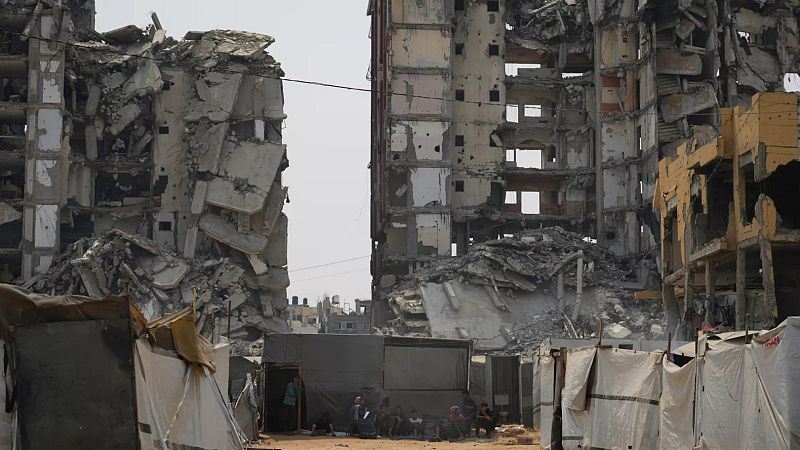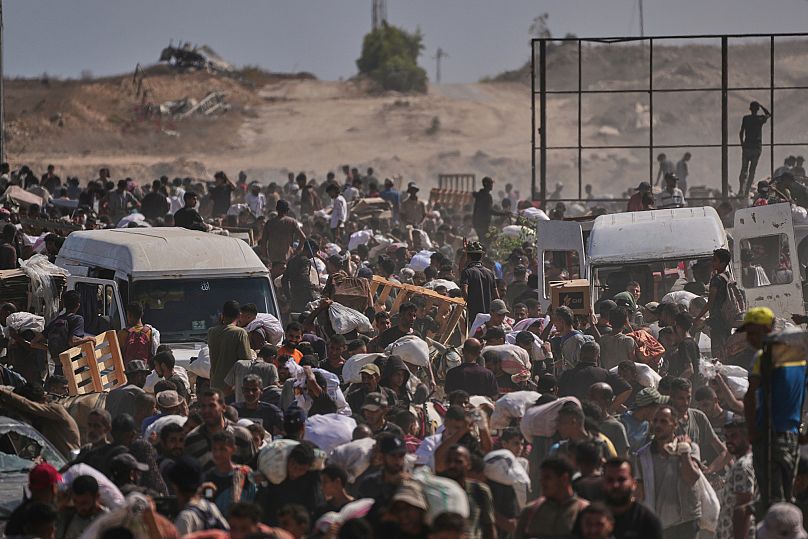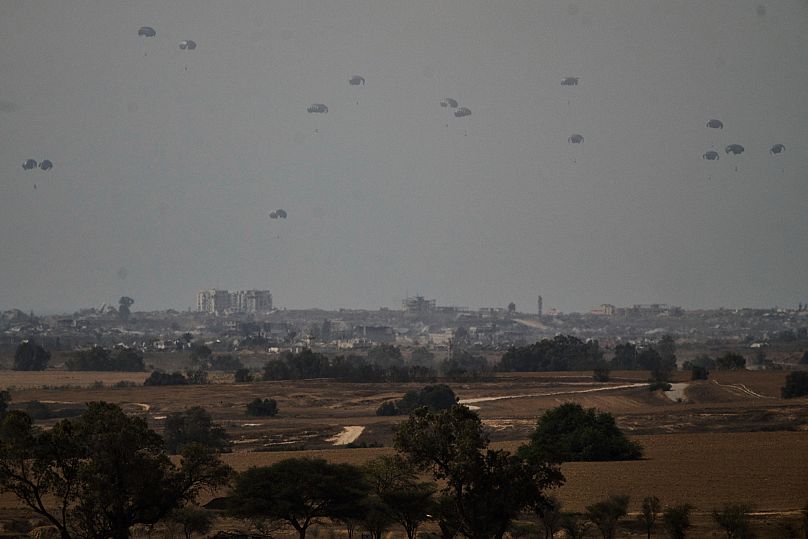At least 100 Palestinians killed in Israeli attacks across Gaza, health ministry says

At least 100 Palestinians have been killed and more than 500 others injured over the past 24 hours as Israeli attacks continue across Gaza despite mounting international pressure and condemnation over its conduct of war.
Eyewitnesses reported attacks in the north, near Gaza City, where Israel carried out an assault on Monday morning killing five Al Jazeera journalists which sparked a wave of criticism.
The Hamas-run Gaza Health Ministry said that at least 69 people were killed in air strikes in various locations across the enclave, while 31 people were also targeted en route to collect aid at food distribution points.
It’s the latest in a series of attacks targeting the Israeli-backed US aid operation, an initiative launched with the hopes of replacing traditional UN systems.
The initiative, run by the Delaware-based Gaza Humanitarian Foundation (GHF), has been the site of repeated assaults, which eyewitnesses have attributed to Israeli troops.
Israel says its troops only fire warning shots and deny targeting civilians deliberately. The IDF is not physically policing any of the GHF sites, which operates its own security apparatus, but it does secure the perimeters within a two-kilometre radius.
The GHF denies any incidents of fatal violence taking place at their sites, though have confirmed that their security personnel have on "rare instances" deployed tear gas to quell unrest and skirmishes in the queues.
The US firm insists that its operations in Gaza, which started in late May, have been highly successful, and are delivering millions of meals daily, claims which could not be independently verified as third-party witnesses are not involved in the US-Israeli delivery scheme.
The United Nations continues to be frozen out of aid operations in Gaza after Israel accused the organisation's branches, primarily UNRWA, of being infiltrated by Hamas operatives assisting in the looting and reselling of aid.
Their operations have been significantly reduced with the emergence of the GHF operation, after Israel claimed, without providing evidence, that Hamas fighters are stealing aid convoys for their personal consumption and to sell in black markets to continue to "finance its war machine".
The lack of UN aid operations has contributed to a worsening humanitarian catastrophe in Gaza. The UN estimates that at least 90% of Gaza's 2 million population are at risk of famine.
Those estimates are supported by the increasing number of malnutrition-related fatalities. The Gaza Health Ministry says five Palestinians died on Monday from starvation, bringing the total number of famine-related deaths to 227, including 103 children.
The Israel-Hamas war began when Hamas-led militants attacked southern Israel on 7 October 2023, killing some 1,200 people, mainly civilians, and taking 251 hostage.
Israel's offensive, currently in its 22nd month, has killed at least 61,500 Palestinians, according to the Hamas-run Gaza Health Ministry, whose figures do not distinguish between combatants and civilians.
The UN says more than two-thirds of deaths it has verified independently were women and children.
Statement from the West
Meanwhile, the United Kingdom has issued a joint statement with 27 partners, many of them European, denouncing the humanitarian suffering in Gaza, rising famine levels and restrictions faced by non-governmental organisations.
"The humanitarian suffering in Gaza has reached unimaginable levels. Famine is unfolding before our eyes. Urgent action is needed now to halt and reverse starvation. Humanitarian space must be protected, and aid should never be politicised," said the statement.
"We call on the government of Israel to provide authorisation for all international NGO aid shipments and to unblock essential humanitarian actors from operating. Immediate, permanent and concrete steps must be taken to facilitate safe, large-scale access for the UN, international NGOs and humanitarian partners," it added.
The joint statement was signed by the foreign ministers of Australia, Belgium, Canada, Cyprus, Denmark, Estonia, Finland, France, Greece, Iceland, Ireland, Japan, Lithuania, Luxembourg, Malta, the Netherlands, Norway, Portugal, Slovakia, Slovenia, Spain, Sweden and Switzerland.
The EU's foreign policy chief Kaja Kallas, EU Commissioner for the Mediterranean Dubravka Šuica and EU Commissioner for Equality, Preparedness and Crisis Management Hadja Lahbib were also signatories.
Today



